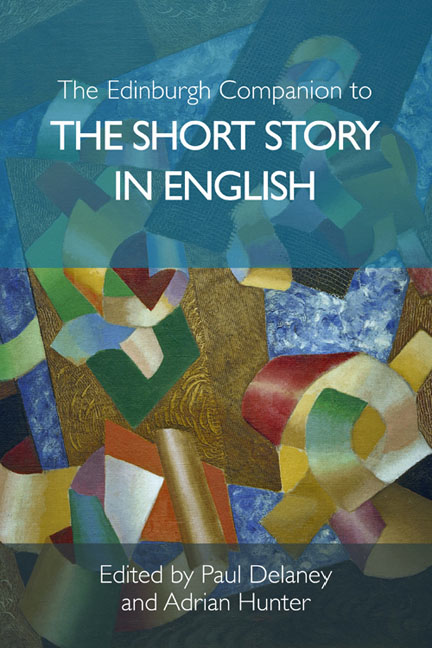Book contents
- Frontmatter
- Contents
- Acknowledgements
- Notes on Contributors
- Introduction
- Part I Historicising the Short Story
- Part II Publishing the Short Story
- Part III Forms of the Short Story
- 9 Short-Short Fiction
- 10 The Weird Tale
- 11 The Horror Story
- 12 Experimental Short Stories
- 13 The War Story
- Part IV Placing the Short Story
- Part V Identity and the Short Story
- Index of Short Story Titles
- General Index
13 - The War Story
from Part III - Forms of the Short Story
Published online by Cambridge University Press: 18 December 2019
- Frontmatter
- Contents
- Acknowledgements
- Notes on Contributors
- Introduction
- Part I Historicising the Short Story
- Part II Publishing the Short Story
- Part III Forms of the Short Story
- 9 Short-Short Fiction
- 10 The Weird Tale
- 11 The Horror Story
- 12 Experimental Short Stories
- 13 The War Story
- Part IV Placing the Short Story
- Part V Identity and the Short Story
- Index of Short Story Titles
- General Index
Summary
THE BREVITY OF THE SHORT STORY lends itself to war narratives, one would have thought, because of the suddenness of war's violence and the traumatic singularity of the battlefield event. And yet, in literary terms, war found expression in large scale narratives, the saga text of mythology (Cath Maige Tuired), the epic poem (the Illiad, the Aeneid), the detailed history (Thucydides’ History of the Peloponnesian War), the gigantic Romance (Le Morte d'Arthur), the endless ballad (Chevy Chase), the epic drama film (Birth of a Nation). However, looked at more closely, these texts break up into discrete episodes and tales, and each tale zeroes in on a scene so powerful or strange that it effectively splits off from the epic form it is nestled within, releasing its own vivid meanings as an isolated story event. One thinks of Achilles dragging the body of Hector round the walls of Troy; the brothers Balin and Balan killing each other unwittingly; Aeneas witnessing the death of Priam. These nodal events cohere as war stories, tellable, iconic, detached. The war story as short story might arguably issue from the epic as if broken from it as fragment; retaining the epic's scope as though it were secreted into the violent detail. This secret intensity need not have to do with representativeness, necessarily. Part of the mystery of war stories often lies in the ways they can block easy symbolism because of the uncanny horror of their core events. And yet the war story's central event does carry its significances at such a pitch that it will often summon up an alienating otherness of sorts from the dark edges of the short form that reads and feels as though epic were being assumed as environment. This chapter will look at the war story from a number of different major conflict zones to track the interrelation of short story form and war, in particular hoping to define the war story in terms of the variety of its sub-genres: the war story as yarn, traumatic dreamwork, metafictional enigma, historical and cultural document, witness record, epic-lyric fragment, propaganda text, dramatic newspaper story, wartime sketch or diary entry, soldier's tale, meditation on violence and death in the world.
- Type
- Chapter
- Information
- The Edinburgh Companion to the Short Story in English , pp. 211 - 224Publisher: Edinburgh University PressPrint publication year: 2018



